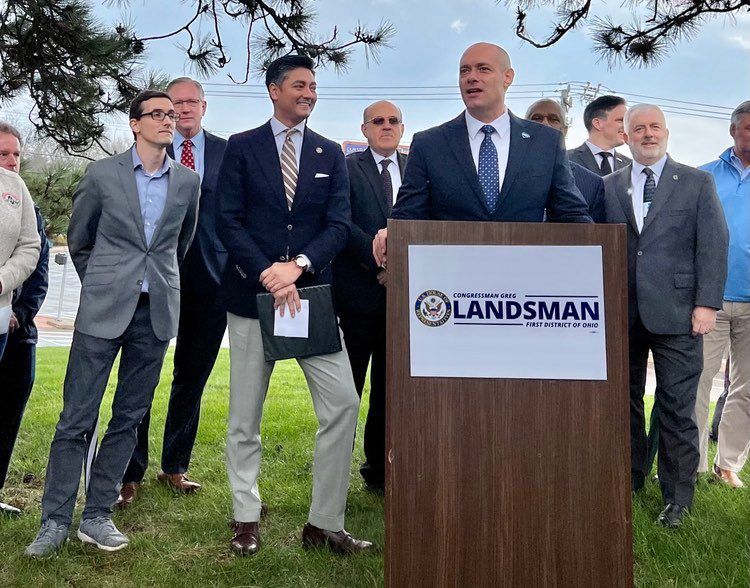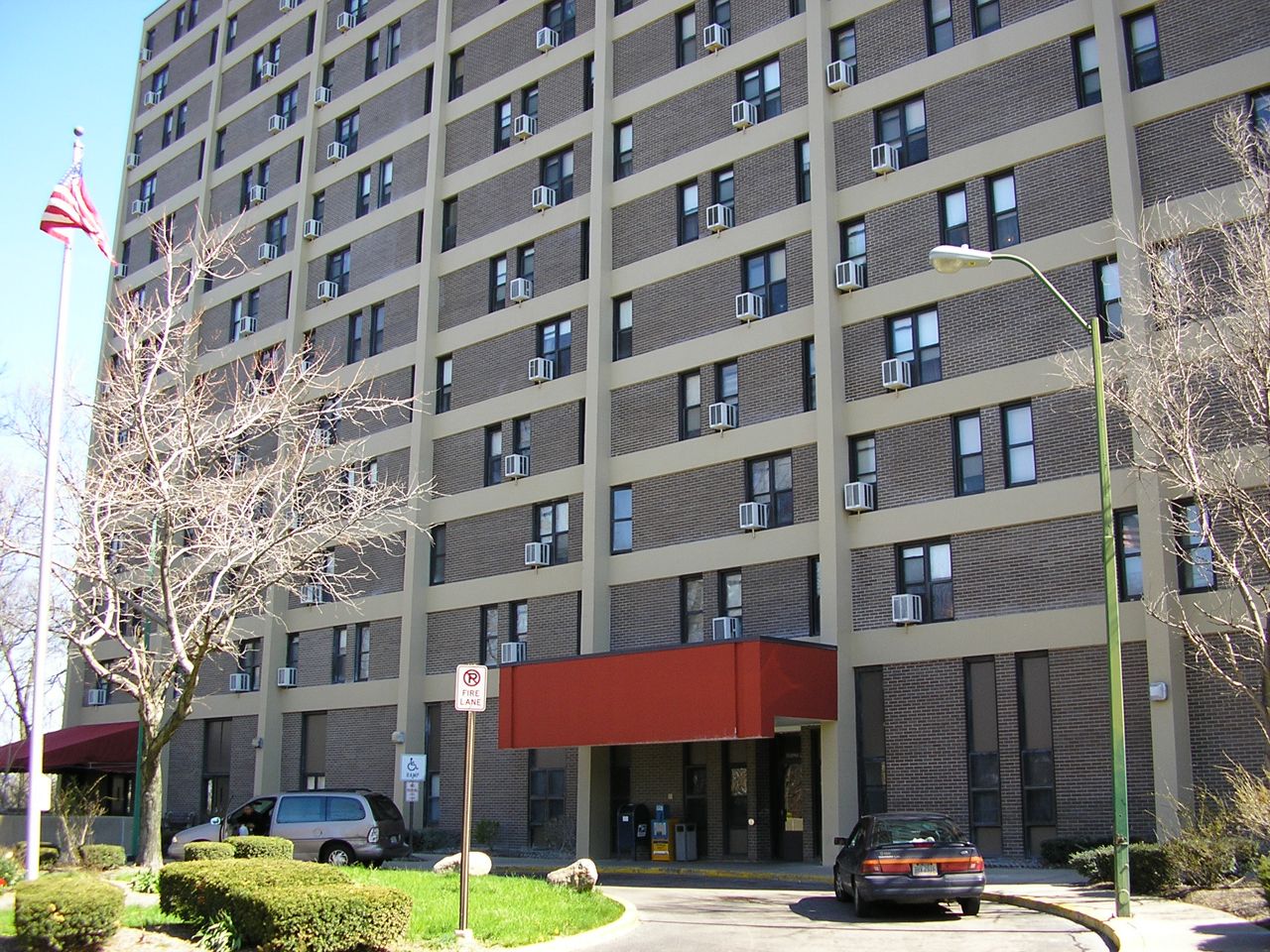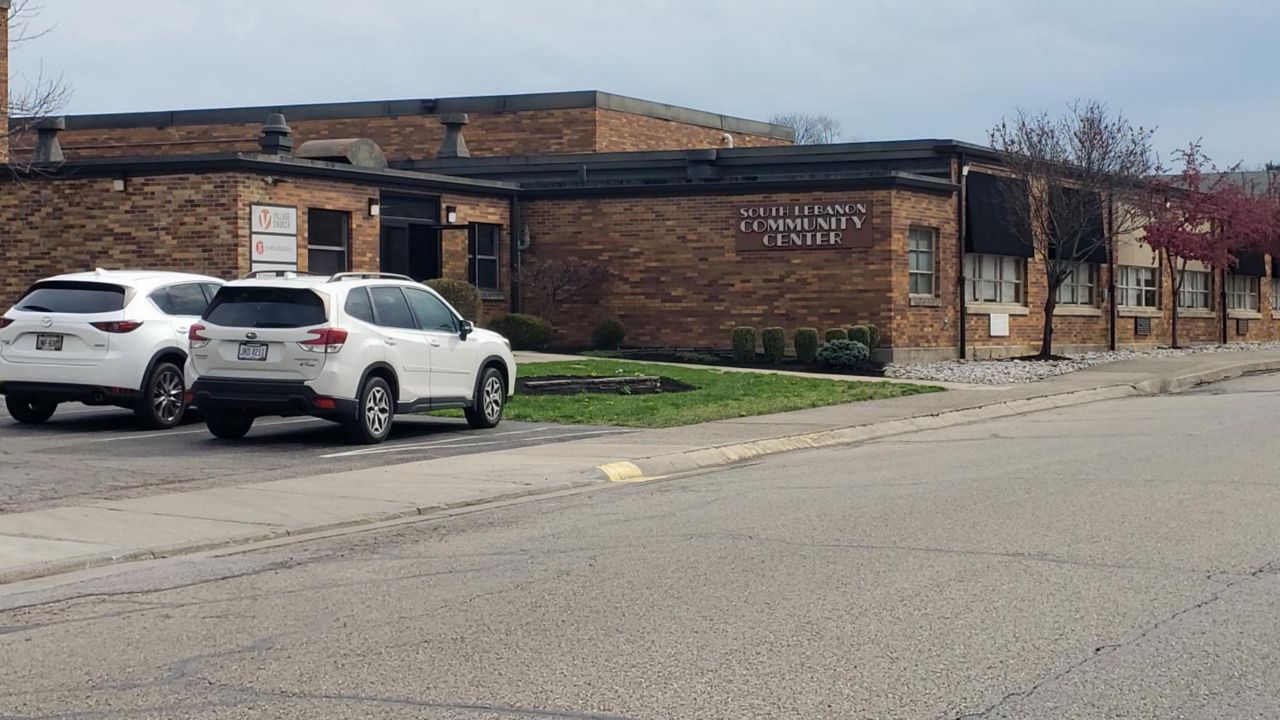CINCINNATI — More than a dozen community-led projects in Hamilton and Warren counties — ranging from the renovation of affordable housing to a new food co-op in a longstanding food desert — have made the short-list for millions of dollars in government funding meant to help push them across the finish line.
What You Need To Know
- Rep. Greg Landsman recommended nearly $35 million in funding to 15 organizations in Ohio's 1st Congressional District
- The funding requests are part of the House Appropriations Committee's annual Community Funding Project process
- Selected proposals range from removing lead pipes and pedestrian-safety improvements to a cooperative grocery store in a food desert
- The decision should come within the next three months, per Landsman's staff
Each year, members of U.S. Congress can submit up to 15 local projects to the House Appropriations Committee for consideration for specialized funding as part of the annual federal budget. Previously known as earmarks, the Community Project Funding process allows the elected officials to work closely with community partners in their district to identify projects of regional importance that offer significant benefits to residents.
Rep. Greg Landsman, D-Ohio, spent the past month sifting through a list of more than 50 applications. They came from city governments, transportation agencies, economic development groups, nonprofits, business programs and the University of Cincinnati.
Ultimately, the first-term congress person decided on 15 projects in areas spread across Ohio’s First Congressional District — from Mount Airy on Cincinnati’s west side to Springboro in the northernmost part of the region.
The projects have a combined total ask of just over $34.6 million. Funding requests range from as much as $5 million to as little as $400,000. The estimated cost of all 15 projects is more than $141 million.
The full list is below.

“Every year, folks send their tax dollars to Washington. What we’re doing here is bringing those tax dollars back to our region,” Landsman said. “Our communities know what they need better than the people who write the budget in D.C. That’s why the Community Project Funding process is so important. It allows us to invest in our own neighborhoods.”
Landsman’s picks represent needs from across the district. They also reflect what he described as “really good work being done on the ground right here at home to make our communities better,” he said.
One of the largest projects is the planned renovation of The Beechwood affordable housing apartment building in Avondale. The Cincinnati Metropolitan Housing Authority (CMHA) asked for $5 million in gap funding to complete the modernization of the high-rise on Forest Avenue. The overall project cost exceeds $44 million.
Gregory Johnson, CEO of CMHA, stressed that Cincinnati has a housing crisis, and projects, like The Beechwood, can play a role in addressing it. Being recommended doesn’t guarantee his agency will get the funding, he said. During the last appropriation cycle, 11 of the 15 projects in Ohio's First Congressional District received funding. But just being in contention, to him, shows there are people in southwest Ohio leadership at the federal level who are taking the issue seriously.
“Across the state, there’ve been some issues when it comes to finding funding for rehabbing and building new, affordable housing. So that makes this potential funding priceless,” said Johnson, noting the goal is to complete The Beechwood by 2026.
Four of Landsman’s selections aim to safeguard the region’s water quality long term. That includes major projects in Franklin, Loveland and Terrace Park. Each proposal focuses on ensuring an “uninterrupted supply of safe drinking water” through water main and pipe replacements, Landsman said.
Greater Cincinnati Water Works — which serves Cincinnati, most of Hamilton County and parts of Warren County, among other areas — requested $910,000 for its lead service line replacement program. Water Works views those dollars as a way to speed up the removal of lead service lines connected to homes, businesses and public properties.
“Especially with the events of East Palestine, clean drinking water is something we can’t take for granted,” Landsman said. “That’s why four of the projects we selected are aimed at improving our region’s water system by replacing water mains and keeping our water lead-free.”

Another theme among Landsman’s selections was walkable communities. He picked multimillion-dollar roadway redesign projects in Springboro and Madeira. Both call for new lane formats, improved sidewalks and the addition of more pedestrian safety features. In Madeira, the Camargo Road-East plan includes adding prettier streetscapes throughout the city’s main commercial and residential area.
Landsman, a former Cincinnati City Council member, supported a $5 million grant toward the $20 million “complete streets” reconfiguration of Central Parkway in downtown.
The Southwest Ohio Regional Transit Authority submitted a $3.25-million proposal for upgrading bus stops across Hamilton County. SORTA’s application lists adding new shelters and real-time trip information as part of that cost. The transit agency also wants to fix uneven pavement near the stops to make them more accessible for people using strollers or wheelchairs.
“Things as simple as a place to sit, shelter from the weather and tools to make that day’s trip that much easier, don’t just provide convenience,” said Brandy Jones, SORTA’s spokesperson. “They also provide the dignity that everyone deserves when moving about their day.”
Jerry Haddix, the city administrator in South Lebanon, views the renovation of a downtown community center as vital. The former Kings Local School District building now serves as a one-stop site for much-needed wellness and nutrition services, Haddix said. The on-site food pantry provides 50,000 meals a year to the city’s low- and moderate-income residents.
Haddix, a 25-year resident of South Lebanon, described himself as “overjoyed” by the possibility of the $812,797 gift from Washington, D.C. The renovation is going to cost a little more than $1 million.
“We want to improve the quality of the building so services can be maintained and flourish for years to come. Those dollars would allow to achieve that goal,” he said.
While most of his selections came from government agencies, not all of them did. Queen Mother’s Market Cooperative, a grocery store focused on healthy food, asked for $2 million to bring a brick-and-mortar site to Walnut Hills. The Cincinnati neighborhood lost its only grocery store in 2017, said Mona Jenkins, a co-founder of the co-op.
If approved, the monetary award would be the “last piece of the funding” and solidify plans for the $5 million market concept, Jenkins said.
“This pledge from Congressman Landsman is a commitment to the physical and mental well-being of residents of Walnut Hills and surrounding neighborhoods, and a commitment to supporting our local communities as well,” she added.
How the process works
Landsman opened the Community Project Funding process in early March. His team created an application form for governments and community organizations in Hamilton and Warren counties.
His team reviewed the submissions in a “holistic manner,” said Chris Dalton, his deputy chief of staff.
Landsman received feedback from his regional leadership team. It has 48 members representing organizations from across the congressional district — the Cincinnati USA Regional Chamber, Xavier University, The Kroger Co., YWCA Greater Cincinnati and the Cincinnati NAACP, to name a few.
The group considered several factors, Dalton said. Two of the biggest, he said, are overall community benefit and resident support. The review team also placed an emphasis on the “readiness” of the project and how much money outside money they’d already secured for it, Dalton added.
Center City Development Corporation (3CDC), for example, requested $4 million in federal money for the redevelopment of Findlay Playground, Grant Park and Over-the-Rhine Recreation Center into a community campus in Cincinnati’s OTR neighborhood. The total project costs nearly $61 million.
UC asked for the full $2 million cost for its semiconductor and microelectronics workforce development program.
Landsman picked both projects.
The process doesn’t have a hard funding cap, Dalton said. But he said the team wanted to look for submissions asking for no more than a few million dollars to ensure they’d receive realistic consideration.
A timeline for finding out what projects will receive funding this fiscal year isn’t yet clear. Dalton said he expects to know within the next two to three months.
Landsman’s Community Project Funding picks
City of Cincinnati – Central Parkway Complete Street Improvement
- Funding Request: $5 million
- Project Cost: $20 million
- Description: The project would remodel Central Parkway into a “Complete Street” by reducing the width of the roadway from 106 feet to 70 feet. It’d also add in new turn lates, dedicated pedestrian sidewalks, bicycle tracks, and a greenspace median. Another aim is to bridge the divide between OTR and West End and increase connectivity between downtown and the city’s inner-belt neighborhoods.
Cincinnati Metropolitan Housing Authority – Beechwood Improvement
- Funding Request: $5 million
- Project Cost: $44 million
- Description: Improvements to the affordable apartment building in Avondale will include replacing boilers and elevator mechanicals, HVAC equipment, roofing systems, appliances, plumbing and electrical systems, additional laundry facilities, smoke and carbon monoxide detectors, and new energy efficient appliances.
City of Franklin – 12-inch Water Line Connection Replacement
- Funding Request: $1.48 million
- Project Cost: $1.8 million
- Description: It would upsize five municipal lines to the appropriate sizes to ensure an uninterrupted supply of safe drinking water to the community. Improvements would primarily take place in the city’s older south and east sides, home to many low-income and vulnerable community members.
City of South Lebanon – Community Center Improvement
- Funding Request: $812,797
- Project Cost: Just over $1 million
- Description: The project looks renovate a downtown community center that serves as a one-stop site for much-needed services, including a food pantry, to low- and moderate-income residents in the community.
Southwest Ohio Regional Transit Authority – Bus Stop Enhancement
- Funding Request: $3.25 million
- Project Cost: $4.1 million
- Description: SORTA aims to improve the safety, efficiency, and reliability of hundreds of bus stops in Hamilton County. Enhancements include fixing uneven pavement for wheelchairs and strollers; updating broken shelters; and installing new seating, lighting, and electronic signage.
City of Loveland – Cherokee Drive Water Main Replacement
- Funding Request: $745,000
- Project Cost: $1.6 million
- Description: The city of Loveland wants install thousands of feet of new water mains to replace outdated existing water lines. Improvements would primarily take place along Cherokee Drive and West Main Street, home to many low- and moderate-income community members.
Mt. Airy Community Urban Redevelopment Enterprise – South Gateway Improvement
- Funding Request: $1.4 million
- Project Cost: $5.6 million
- Description: The project would rehabilitate a group of vacant and dilapidated buildings and properties in the heart of the neighborhood. They plan to build a new, 20,000-square-foot mixed-use development to serve as a community anchor in the Mt. Airy Business District.
Village of Terrace Park – Elm Street Water Line Replacement
- Funding Request: $400,000
- Project Cost: $500,000
- Description: The village wants would install hundreds of feet of a new, secondary waters line. The primary goal is to replace a section of water line that has broken multiple times over the past few years because of heavy traffic on Hamilton County Route 50.
City of Springboro – State Route 741 / Lytle Five Points Intersection Reconstruction
- Funding Request: $2 million
- Project Cost: $6 million
- Description: In Springboro, the city wants to update a critical and busy intersection for commuters and commercial drivers. Reconstruction would include new turn lanes and safety features, better lighting and signage, and improved pedestrian access.
City of Madeira – Camargo Road-East Phase 2 Improvement
- Funding Request: $2.85 million
- Project Cost: $3.565 million
- Description: The project centers on the reconstruction of 1.2 miles of a major corridor through Madeira’s main commercial and residential area. Work involves road resurfacing and full-depth repairs as well as the installation of new streetscape enhancements, curbs and sidewalks.
Port of Greater Cincinnati Development Authority – Lunkenheimer Revitalization
- Funding Request: $2.772 million
- Project Cost: $3.212 million
- Description: The goal of the project is to revitalize an abandoned 150,000-square-foot building in South Fairmount. The Port wants to get the former factory into a position for development to spur further development in the surrounding area.
Cincinnati Center City Development Corporation – Findlay Community Center Improvement
- Funding Request: $4 million
- Project Cost: $60.9 million
- Description: A centerpiece of the planned community campus is the development of a 51,000-square-foot community center. Inside there’ll be multipurpose rooms and workout spaces. The site will also fields and courts for sports as well as aquatic facilities.
Queen Mother’s Market Cooperative – Queen Mother’s Market Establishment
- Funding Request: $2 million
- Project Cost: $5 million
- Description: The project team is creating a brick-and-mortar grocery store in Walnut Hills. The new grocery store would primarily benefit seniors and vulnerable community members who have lacked nearby access to quality food options since 2017.
University of Cincinnati – Semiconductor and Microelectronics Workforce Development
- Funding Request: $2 million
- Project Cost: $2 million
- Description: The Semiconductor and Microelectronics Workforce Development project focuses on advancing engineering and technical education at UC. The workforce training aspect would benefit more than 500 new students pursuing semiconductor and microelectronics training.
Greater Cincinnati Water Works – Lead Service Line Replacement
- Funding Request: $910,000
- Project Cost: $1.82 million
- Description: The goal is to provide resources to shorten the timeframe for Greater Cincinnati Water Works to remove and replace lead service lines on both private property and the public right-of-way.
Correction: A previous version of this story included an incorrect number of meals served at a South Lebanon community center. It has been updated with the correct number. (April 7, 2023)



